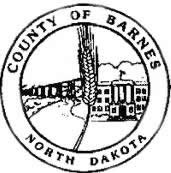Farm Financial Management FAQs
Farm financial management is a comprehensive process that involves planning, tracking and analyzing financial resources to ensure profitability, sustainability and stability of operations. Effective management includes a robust accounting program focused on budgeting, cost control, cash flow management, projections, and informed investment decisions. Armed with accurate financial information, farmers can make important decisions about:
- investing in crops and livestock,
- managing debt,
- maximizing profits and
- the pros and cons of loans and government programs.
AgriBuilder creates the most value for agricultural businesses by integrating:
- intuitive accounting software (Xero)
- seamless and actionable farm management software (Figured) and
- ongoing advice and support from seasoned agriculture financial consultants.
A robust farm accounting program helps farmers manage finances, expenses and income while seamlessly integrating with your farm management system. In addition to these necessities, your farm accounting software must help you streamline process for annual tax filings. Check out these common signs that your accounting system is broken.
An effective farm accounting process delivers updated financial reports that empower decision making. There are three standard financial statements including the balance sheet, income statement and statement of cash flow. The balance sheet conveys details about the farm’s assets, liabilities and overall net worth. The income statement reports revenues and expenses over a specific period of time, and the cash flow statement highlights the movement of cash.
Adams Brown regularly reviews financial reports with agriculture clients to monitor operations, assess profitability, identify trends for planning and make informed decisions. Together, we also review:
- accounts payable and receivable,
- budget versus actual,
- break-even analysis,
- cost of production,
- crop gross margin,
- depreciation schedules,
- inventory breakdowns by field and/or crop
- market value balance sheet and
- tax projections.
A holistic approach to reviewing your financial and farm management data ensures your ability to make sound business decisions for your farm while planning for future initiatives, investments and goals.
Additional farm financial management insights:
While each farming operation faces unique and different challenges and opportunities, there are some general guidelines which can help improve cash flow. These include:
- timing large purchases with revenue cycles,
- ensuring a diverse source of income (for example, agritourism, integration of wind farms, leasing hunting ground),
- negotiation of payment amounts and terms with vendors/suppliers,
- leveraging lines of credit and
- maintaining an emergency fun
Understanding your farm’s value is important for various reasons, ranging from financial planning to strategic decision-making. Whether you are buying, selling, planning your estate or evaluating operational success, knowing what your farm is worth can provide critical insights to help you achieve your goals. A thorough farm valuation will help you conclude the true value of your farm.
Map of Barnes County (ND)
Valley City Agriculture Accounting Services
- Agreed Upon Procedures
- AgriBuilder (proprietary integrated accounting and farm management solution)
- Budgeting & Forecasting
- Business Tax Planning & Compliance
- Business Transformation
- Cash Flow Management
- Financial Statement Audits
- Outsourced Accounting
- Succession Planning
- Tax Planning & Compliance for Farm Owners
- Wealth Planning
About Barnes County (ND)
 Barnes County, with its county seat Valley City, is a key agricultural player in eastern North Dakota, characterized by its fertile lands within the Sheyenne River Valley. While not as extensively part of the “bonanza farm” era as counties further north in the Red River Valley, Barnes County still has a rich history of large-scale grain production. Today, the county’s approximately 750 farms cultivate over 600,000 acres, focusing on high-yield crops such as soybeans, corn, wheat, and dry edible beans. In addition to crop production, Barnes County maintains a significant livestock presence, particularly in cattle. Farmers actively engage in sustainable practices, including crop rotation, cover cropping, and no-till, often supported by the Barnes County Soil Conservation District, to promote soil health, reduce erosion and ensure long-term agricultural vitality in the region.
Barnes County, with its county seat Valley City, is a key agricultural player in eastern North Dakota, characterized by its fertile lands within the Sheyenne River Valley. While not as extensively part of the “bonanza farm” era as counties further north in the Red River Valley, Barnes County still has a rich history of large-scale grain production. Today, the county’s approximately 750 farms cultivate over 600,000 acres, focusing on high-yield crops such as soybeans, corn, wheat, and dry edible beans. In addition to crop production, Barnes County maintains a significant livestock presence, particularly in cattle. Farmers actively engage in sustainable practices, including crop rotation, cover cropping, and no-till, often supported by the Barnes County Soil Conservation District, to promote soil health, reduce erosion and ensure long-term agricultural vitality in the region.

